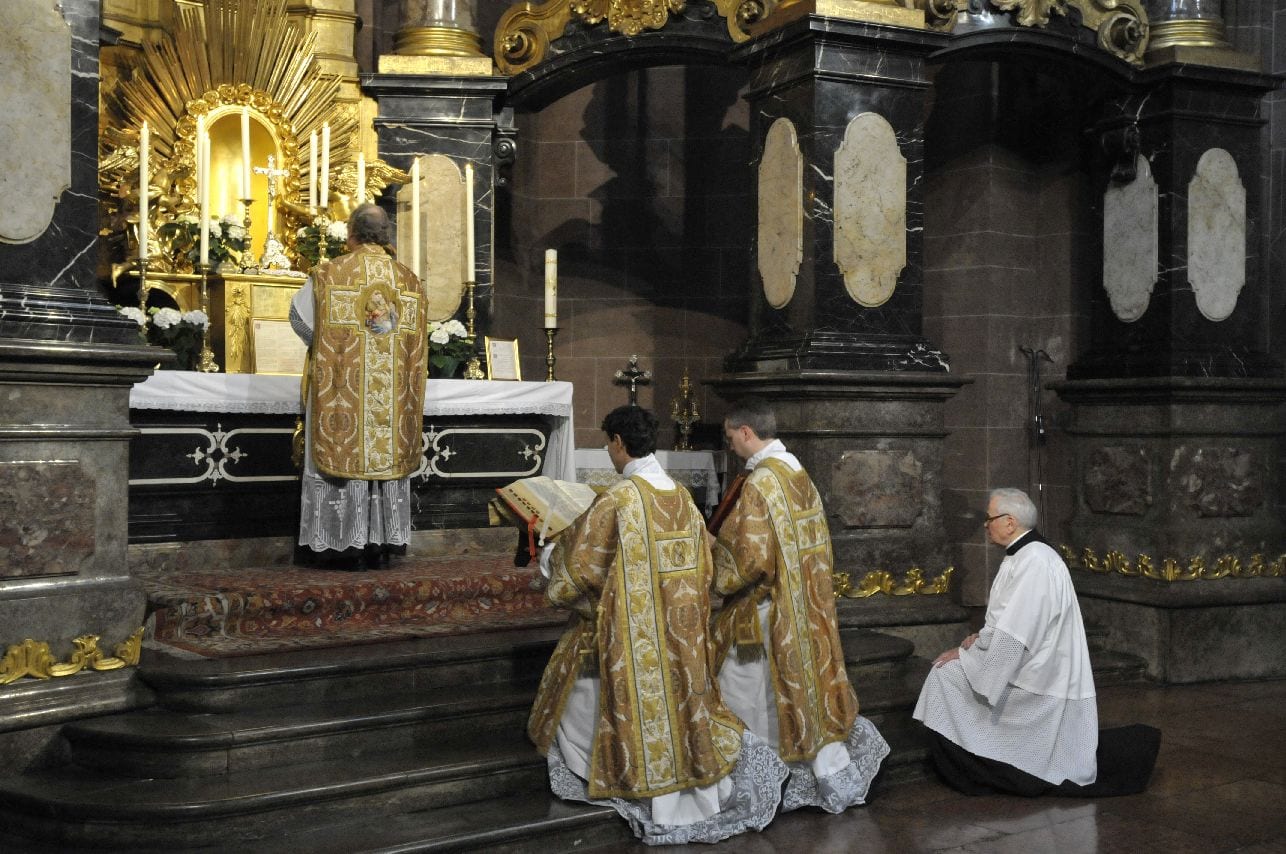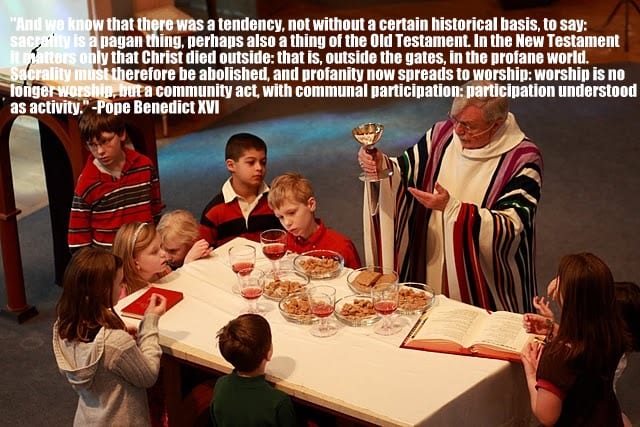Over-Intellectualization of the Catholic Faith

“The challenge becomes more difficult because one of the peculiarities of the old rite is that it makes itself accessible only slowly—unless the uninitiated newcomer to this ancient pattern of worship is a religious genius. One has never ‘learned everything there is to learn’ about the Roman Rite, because in its very origin and essence this enduring and truly extraordinary form is hermetic, presupposing arcane discipline and rigorous initiation…The great damage caused by the liturgical revolution after Vatican II consists above all in the way in which the Church lost the conviction with which all Catholics—illiterate goatherds, maids and laborers, Descartes and Pascal—naturally took part in the Church’s sacred worship. Up until then, the rite was among the riches of the poor, who, through it, entered into a world that was otherwise closed to them. They experienced in the old Mass the life to come as well as life in the present, an experience of which only artists and mystics are otherwise capable.”—Martin Mosebach, Return to Form, Crisis Magazine
The first thing anyone learns about Aristotle is that he believes that knowledge starts in with the senses. The senses reveal what is most obvious to us and our minds work with what is perceived by them to arrive at what is essential in the thing perceived: a definition. For example, most people learn faster what a dog is by seeing and hearing one than by reading about one in the dictionary. And those who only see and hear, or run for the lives are able to use that experience to create the dictionary definition of a dog later on. How else would we know what a dog is than by starting with sight, smell, taste, touch, and hearing? In a certain more human respect, we might say that a person who has worked with dogs knows what a dog is more than a person who has only read about them.
There is a parallel here with the liturgy revealing who God is: we cannot sense God, but we can represent Him obviously to our senses. God is ineffable, which etymologically means “un-speakable.” If words fall short in describing God and more can be communicated by doing certain visible and sensible actions, and if a priest fails to do those things, he is overconfident in his words. One must experience Him – something that none of us can bring about, often times especially not those who are intellectual. But we can set the right stage for an encounter to happen. Defining God is impossible, but we can communicate something about him, analogically through symbols. Words are symbols, but so are other things, like music, incense, and kneeling. These second type of symbols are more obvious to simple and intellectual people alike. Symbols that can be experienced without words are starting points for understanding more, just as in the above case of the dog.
When it comes to representing God, the Extraordinary Form of the Mass manifests the mystery of God in way that does not encourage the illusion that we fully understand Him. It promotes mystery – for the people and for the priest – because there is much that is not immediately understood, but still has meaning that can be discovered at the pace one wishes. This way, the most unintelligent and most uninterested person finds that he doesn’t understand what’s going on, and is provoked to understand more. That is intentional. You have to experience it to know what I mean. Go find one: http://latinmassdir.org/

